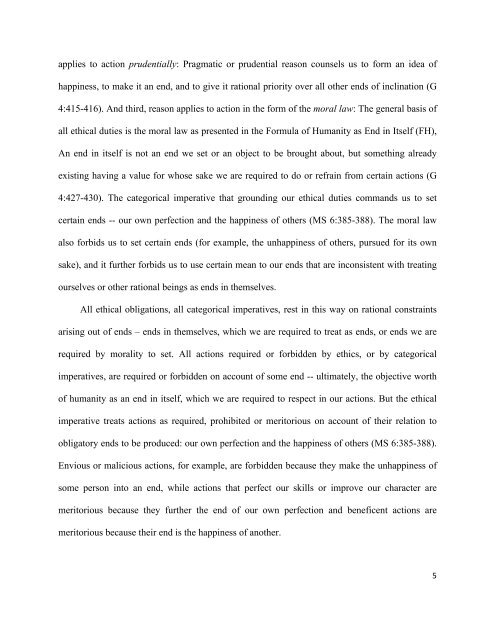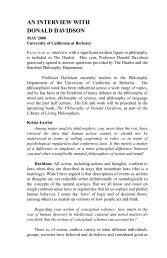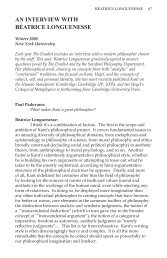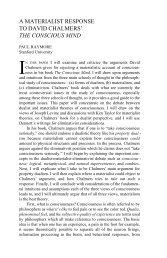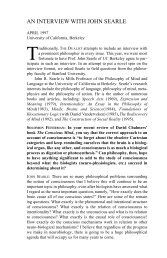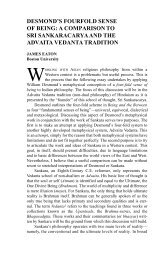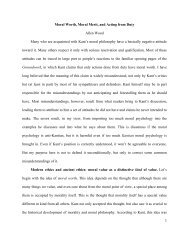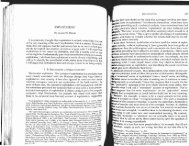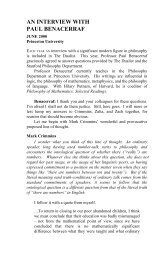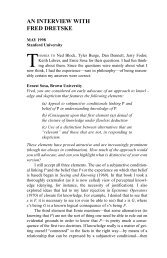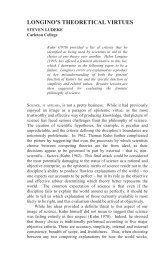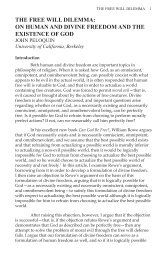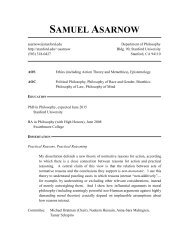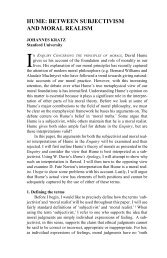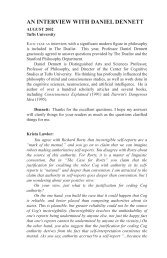The Independence of Right from Ethics Allen Wood Right and ethics ...
The Independence of Right from Ethics Allen Wood Right and ethics ...
The Independence of Right from Ethics Allen Wood Right and ethics ...
Create successful ePaper yourself
Turn your PDF publications into a flip-book with our unique Google optimized e-Paper software.
applies to action prudentially: Pragmatic or prudential reason counsels us to form an idea <strong>of</strong>happiness, to make it an end, <strong>and</strong> to give it rational priority over all other ends <strong>of</strong> inclination (G4:415-416). And third, reason applies to action in the form <strong>of</strong> the moral law: <strong>The</strong> general basis <strong>of</strong>all ethical duties is the moral law as presented in the Formula <strong>of</strong> Humanity as End in Itself (FH),An end in itself is not an end we set or an object to be brought about, but something alreadyexisting having a value for whose sake we are required to do or refrain <strong>from</strong> certain actions (G4:427-430). <strong>The</strong> categorical imperative that grounding our ethical duties comm<strong>and</strong>s us to setcertain ends -- our own perfection <strong>and</strong> the happiness <strong>of</strong> others (MS 6:385-388). <strong>The</strong> moral lawalso forbids us to set certain ends (for example, the unhappiness <strong>of</strong> others, pursued for its ownsake), <strong>and</strong> it further forbids us to use certain mean to our ends that are inconsistent with treatingourselves or other rational beings as ends in themselves.All ethical obligations, all categorical imperatives, rest in this way on rational constraintsarising out <strong>of</strong> ends – ends in themselves, which we are required to treat as ends, or ends we arerequired by morality to set. All actions required or forbidden by <strong>ethics</strong>, or by categoricalimperatives, are required or forbidden on account <strong>of</strong> some end -- ultimately, the objective worth<strong>of</strong> humanity as an end in itself, which we are required to respect in our actions. But the ethicalimperative treats actions as required, prohibited or meritorious on account <strong>of</strong> their relation toobligatory ends to be produced: our own perfection <strong>and</strong> the happiness <strong>of</strong> others (MS 6:385-388).Envious or malicious actions, for example, are forbidden because they make the unhappiness <strong>of</strong>some person into an end, while actions that perfect our skills or improve our character aremeritorious because they further the end <strong>of</strong> our own perfection <strong>and</strong> beneficent actions aremeritorious because their end is the happiness <strong>of</strong> another.5


